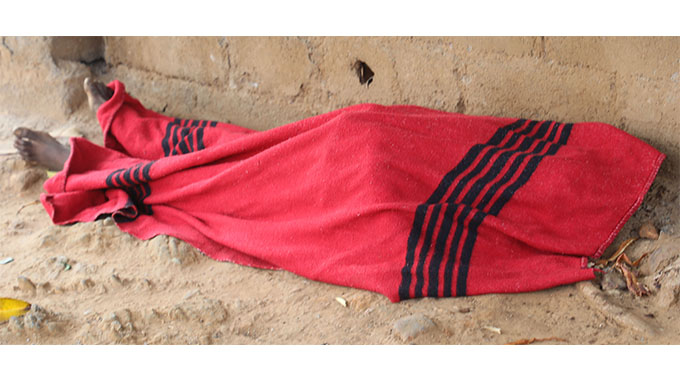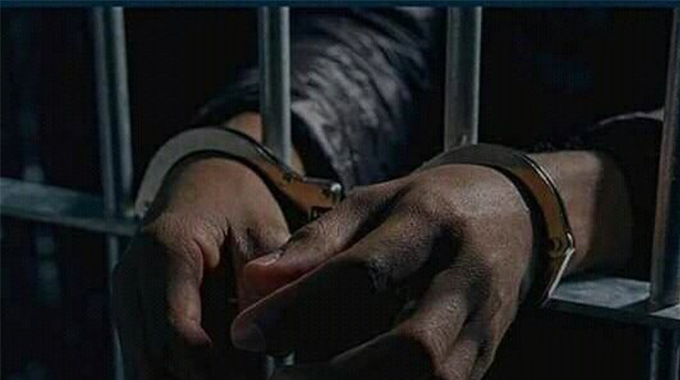
The Sunday News

Michael Magoronga, Midlands Correspondent
In October 2021, the Redcliff community was left trembling with fear after a spear wielding man went on a killing rampage.
The community was left shocked after Thubelihle Kheshow (27) a local businessman, gored and left seven people dead and five others hospitalised.
It is however, the way he violently and mercilessly slaughtered some of his victims with the spear, even raping some of them, that shocked all and sundry.

Thubelihle Kheshow
Among his victims were three minors aged four, seven and eight, a situation which left the community with more questions than answers.
Kheshow reportedly started behaving violently when he was taken to a white garment church shrine where he reportedly uprooted trees and threw them towards anyone who wanted to calm him down.
In recent months, the nation woke up to another incident of a rampant killer who shot and killed three people including a white garment church leader, a police officer and a bar tender.
The former police officer, Jaison Muvhevhi went on a rampage and sprayed bullets towards anyone who dared to touch him.
He was later arrested in Mozambique as he tried to flee. Even after his arrest, many questioned his mental state as he acted as if nothing had happened.

Just like Kheshow, Muvhevhi gave a graphic description of how he killed some of his victims, leaving one section of the community suspect that we might have another Kheshow in our midst.
Just this past week, an ex-convict from Gokwe slit his father’s throat with a sickle for yet to be known reasons.
Bornface Siamkweza had just been released from prison after serving a four-year jail term for attempted murder after he tried to kill his father.
Siamkweza was recently arrested and will appear in court soon. Last week, an inmate at Ingutsheni Central Hospital attacked fellow inmates, leaving one dead.
All these are examples of how the nation has been held at ransom by people with mental disorders.
As for Kheshow, the court found him not guilty after it ruled that he was mentally unstable when he committed the brutal killings.

Mental health
Justice Makonese, sitting at the Gweru High Court Circuit, retained a special verdict of not guilty to murder charges because of insanity in terms of the Mental Health Act.
“The State concedes to the fact that the accused was suffering from a mental disorder at the time of committing the offence. It is therefore, appropriate for the court to return a verdict of not guilty by reason of insanity in terms of Section 29(2) of the Mental Health Act, Chapter 15:12,” ruled the judge.
It is such news that left the community baffled, but Justice Makonese was quick to address the community’s fears.
The news of Kheshow being acquitted sent shivers to the public as they were quick to conclude that he was to return to the society.
Justice Makonese however, allayed the fears saying Kheshow was a danger to society and ordered that he be taken to a mental health institution for further treatment.

In as much as Kheshow was found guilty and confined to a mental health institution, the community remains with a lot of “what ifs.”
What if he were to be declared fit and released next week, what will happen? What if the families of the deceased want to revenge? What if Kheshow kills more people? What if?
According to the country’s Mental Health Act, a person who is mentally ill to the extent that he is a danger to him/herself may require detention and/ or supervision, treatment and control and can be released once deemed mentally stable.
Amid an increase in such cases where people are committing heinous crimes, only to be deemed insane, questions arise pertaining the safety of the citizens, in case they are released.
The country is grappling with drug and substance abuse, which has led to many people having mental problems.
Some people are also involved in illicit and uncouth ways of amassing wealth like seeking supernatural powers, that might end up causing mental problems.
There have been instances where these ways of amassing wealth have backfired, and in many cases leading to mental instability.
It is against this backdrop that questions have been raised regarding the functionality of the Mental Health Act and what it takes for one to be released from the mental institutions.
Legal expert, Ms Lina Nyamukachi gave a legal perspective on the matter saying what Judge Makonese did was constructional, adding insanity was a defence on its own.

“As long as it is done in terms of the law, it’s an automatic acquittal. In terms of Section 227 of the Criminal Law and Codification Act Chapter 9:3, insanity is a complete defence for a commission of a crime,” said Ms Nyamukachi.
She said society has nothing to fear as mental institutions are not likely to release the persons, though declared not guilty, before they make sure they are no longer a danger to themselves and the society.
“The persons are well taken care of and are constantly monitored by the psychiatrist on a daily basis.
There is definitely no way that the mental health institutions will discharge them without satisfying themselves that the person is fit and proper for the society,” she said.
Ms Nyamukachi said society should also take lessons from the above incidences and report cases of mental instability in time to avoid disaster.

Ingutsheni Hospital



